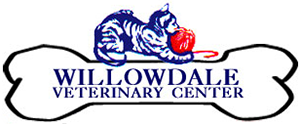Library
-
Leflunomide is an immunomodulating agent used to treat certain immune-mediated conditions in cats and dogs. It is used off label (extra label) in veterinary medicine. Leflunomide comes in a tablet form that may be specially compounded into a liquid. Wear gloves when handling and do not handle if pregnant or nursing.
-
Lidocaine/lidocaine combinations topical are local anesthetics that provide anesthesia (a numbing effect) to the skin in cats, dogs, and other animals. Combination products may contain other local anesthetics, antibiotics or antimicrobials, steroids, antihistamines, and/or cleansing agents.
-
Lotilaner is used to treat and prevent flea infestations and treat and control tick infestations in dogs and cats. After being administered to a pet, lotilaner is distributed throughout the body. When fleas or ticks bite the dog or cat, they are exposed to the drug and killed during their blood meal.
-
In North America, many parasitic lungworms infect cats. Cats can become infected by swallowing infective stages of parasitic lungworm. The exact means of becoming infected varies according to the life cycle of the particular parasite. Signs can include coughing, heavy breathing, wheezing, sneezing, poor appetite or anorexia, weight loss, fever, enlarged lymph nodes, and ocular or nasal discharge, and may be more prominent in kittens due to their immature immune systems. Although the success rate of treatment depends on the severity of symptoms and the number of parasites present, the prognosis for recovery is generally good.
-
Once a pet has lost some weight, the new goal is to make sure that excess weight stays off. Pet parents who partner with their veterinary health care team for support and who focus on changing their behaviors often have the most success. Examples of some changes include using a different food or a different feeding method, focusing more on portion control, and incorporating some movement or activity time into each day. This article addresses several commonly asked questions about how to help a pet during the maintenance phase (after the weight has been lost).
-
Methionine (brand name Methio-Form) is a nutritional supplement used to make urine more acidic in cats and dogs. Urine acidifiers help manage certain types of urolithiasis (urinary stones). Methionine comes in gel, chewable, powder, and tablet forms. Monitor urine pH and seek immediate veterinary care if signs of Heinz-body anemia appear in cats (pale gums, red-brown urine, weakness).
-
Metoprolol is a beta-blocker used to treat certain heart rhythm problems and hypertension (high blood pressure) in cats and dogs. It has also been used in the treatment of hypertrophic cardiomyopathy (HCM) in cats. It is used off label (extra label) in veterinary medicine.
-
Miconazole + chlorhexidine + tris-EDTA topical (brand name MiconaHex+Triz®) is an antifungal and antimicrobial cleansing agent used in the treatment of surface skin infections and to enhance the effectiveness of other topical antibiotics in cats and dogs. It comes in spray, mousse, shampoo, and wipe forms.
-
Miconazole otic is an antifungal used in the treatment of external ear infections (otitis externa) caused by fungal organisms in cats, dogs, and other animals. It may be specially compounded and/or combined into a formulation with other medications. Miconazole otic comes in ointment or liquid drop suspension forms that may be specially compounded.
-
Miconazole topical is an antifungal used in the treatment of skin infections caused by yeast in cats and dogs. It may be used “off-label” or “extra label” for other conditions and in other animals. It may be specially compounded and/or combined into a formulation with other medications. Miconazole topical comes in a variety of forms.
